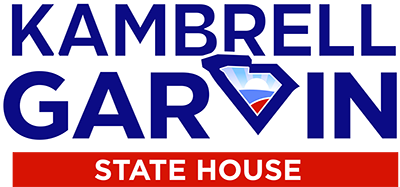The House of Representatives concurred in Senate amendments to H.3449 and enrolled the legislation for ratification. The bill enacts the “SOUTH CAROLINA HEMP FARMING ACT” to promote the cultivation and…
Read MoreThe House of Representatives amended, approved, and sent the Senate H.4000, the General Appropriation Bill, and H.4001, the joint resolution making appropriations from the Capital Reserve Fund, which together comprise…
Read MoreThe House of Representatives amended, approved, and sent the Senate H.3759, the “SOUTH CAROLINA EDUCATION, CAREER OPPORTUNITY, AND ACCESS FOR ALL ACT”. The legislation makes comprehensive revisions that are offered…
Read MoreThe House of Representatives concurred in Senate amendments to H.3849 and enrolled the legislation for ratification. The joint resolution provides a GRACE PERIOD ON THE ENFORCEMENT OF THE NEW CIGARETTE…
Read MoreThe House of Representatives gave second reading approval to H.3274, a bill providing for the PREEMPTION OF LOCAL GOVERNMENT REGULATION OF VAPING, E-CIGARETTES, CIGARETTES, AND OTHER TOBACCO AND NICOTINE PRODUCTS. …
Read MoreThe House of Representatives amended, approved, and sent the Senate H.3137, a bill making REVISIONS TO THE LOCAL GOVERNMENT FUND. The legislation discontinues the retrospective approach for funding political subdivisions…
Read MoreOn Tuesday, January 8, 2019, lawmakers gathered in Columbia to commence the 123rd South Carolina General Assembly. On Wednesday, the General Assembly took part in ceremonies for the inauguration of…
Read More